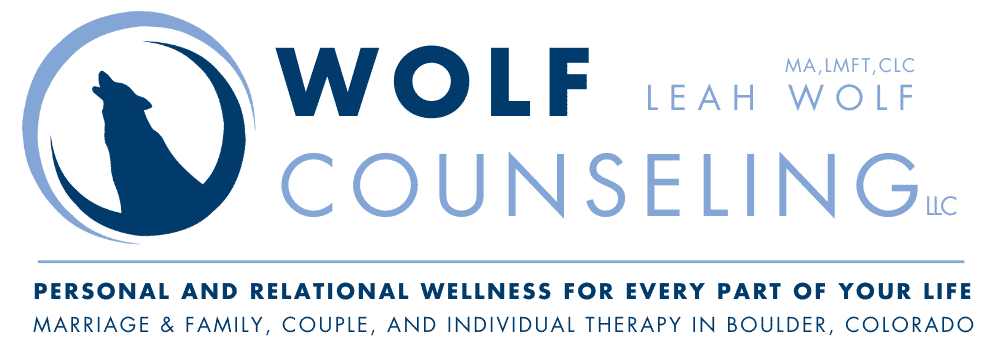Polarization and Conflict in Relationships
Recently I listened to an NPR show about a project called One Small Step. The project’s efforts were aimed at reaching across the divide of partisans by having intentional conversations grounded in a psychology theory known as, Contact Hypothesis. It inspired me to write a blog about polarization and conflict in relationships.
When people come together in relationships they each bring a set of complex individual experiences born, raised, and interwoven within tapestry of their relationships with family of origin, culture, and society, etc. Those experiences shape how others will respond, or react in a given situation to an individual, and how that individual will respond, or react in a given situation with others.
When I used to work with couples experiencing high conflict, I often saw that the couple’s cycle had escalated to a point of blinding polarization between the two partners. As a result these couples could not resolve conflict. In fact, their conflict and polarization became even more escalated in their futile, and often damaging efforts to be heard and get their needs met.
Contact Hypothesis suggests, that in order to have successful conflict resolution, there must be “equal status among groups and common goals;” however, an often missed problem in relationships are power imbalances and the abuse of that power. As therapists, we believe everything makes sense in the context of a person’s life; however, it never excuses behavior that is harmful, damaging, or dangerous.
Contact Hypothesis is a researched theory and approach intended to give people an opportunity to “recognize when personal values get conflated with people” (John Powell) and to “remember our shared humanity by listening” (Dave Isay). I was struck by a statement about structural racism that reminded me of my own observation when working with high-conflict couples in the past:
“It’s one thing to have a political belief that is different, but at the end of the day if your politics say that I don’t have a right to exist that’s a different kind of meaning for me… and so where there is an undermining of the recognition of my humanity, that’s beyond political indifferences.” (LaTosha Brown)
You might say, “Wait – I thought we were talking about relationships, not politics.” We are. “The personal is the political,” was coined by the second wave of feminism. The phrase was used to “underscore the connections between personal experience and larger social and political structures.” (Wiki) When there is still violence against, and oppression perpetrated on marginalized communities (that includes women) – a shared humanity is not being recognized.
I saw an undermining of humanity occurring in high-conflict partnered relationships; partners became so polarized in their experience of one another to the degree they became blinded to the humanity of the other person, losing all ability to listen to and hear each other. Inevitably, each became the enemy. This type of dynamic can become dangerous, not only in groups of people and in the political climate, but also in intimate partner and domestic relationships.
“High conflict is when regular conflict escalates to a point where both sides start to feel like the other side is crazy…” (I’ll add, or they themselves begin to question their own reality.) “…they are baffled by each other… there’s so little trust and so many distortions happening in how we perceive each other that it get’s really hard to see the options. We make big mistakes in our assumptions about each other.” (Amanda Ripley)
An inability to soften stances, or assumptions about others can compromise the integrity of any relationship; power differentials polarize this further and can become harmful, if not, deadly. Couple therapists need to be especially tuned into high conflict in relationships, because it could be an indicator that intimate partner violence (IPV), or domestic violence (DV) is actively present in the relationship.
To proceed with couple therapy when there is or has been IPV, or DV in the relationship, places both partners in harms way, and is illegal for a licensed professional to continue treating the couple.
“Do we turn on each other? Or do we turn toward each other?” because “It is clear… that when we turn on each other, we don’t survive.” (John Powell) The argument and concern that has been raised in our current political and sociopolitical environment is, “How should Americans be engaging with each other now given the strong polarization and feelings of so much at stake?” (Elise Hue)
When we are at an inflection point, do we get angry and fight? Do we give in to contempt? Or do we lean in and listen?
“There is a time to fight. I do think that anger is important, but the biggest argument for having conversations that leave your decency intact is because it’s the only thing that works. If we want to persuade and change each others minds there is no way to do that without making each other feel heard.” (Amanda Ripley)
In order to create change, build trust, and build more connection, we must engage in having uncomfortable conversations and learn to contend with our own resistance and discomfort. I often refer to Gottman’s Four Horseman and Antidotes as a tool to navigate conflict. With success, the hope is to create more understanding, bridge the gap between differences, and create a more just and balanced relationship.
Relationship therapy is a platform to engage in collaborative and meaningful conversations in a safe and controlled environment and to make contact with our shared humanity. In doing so, therapy can bridge the gap of polarized experiences both internally and between people. It can help people learn how to listen, and feel heard.
When there is active IPV, or DV, relationship therapy is contraindicated and the victim should seek professional help from the National Domestic Violence support hotline, or local domestic violence hotline, or shelter as soon as safely possible. If it is an emergency, the victim should call 911.
DO NOT seek couple, or relationship therapy with your partner if you are in a relationship that has experienced a pattern of IPV, or DV, and/or is currently active.


